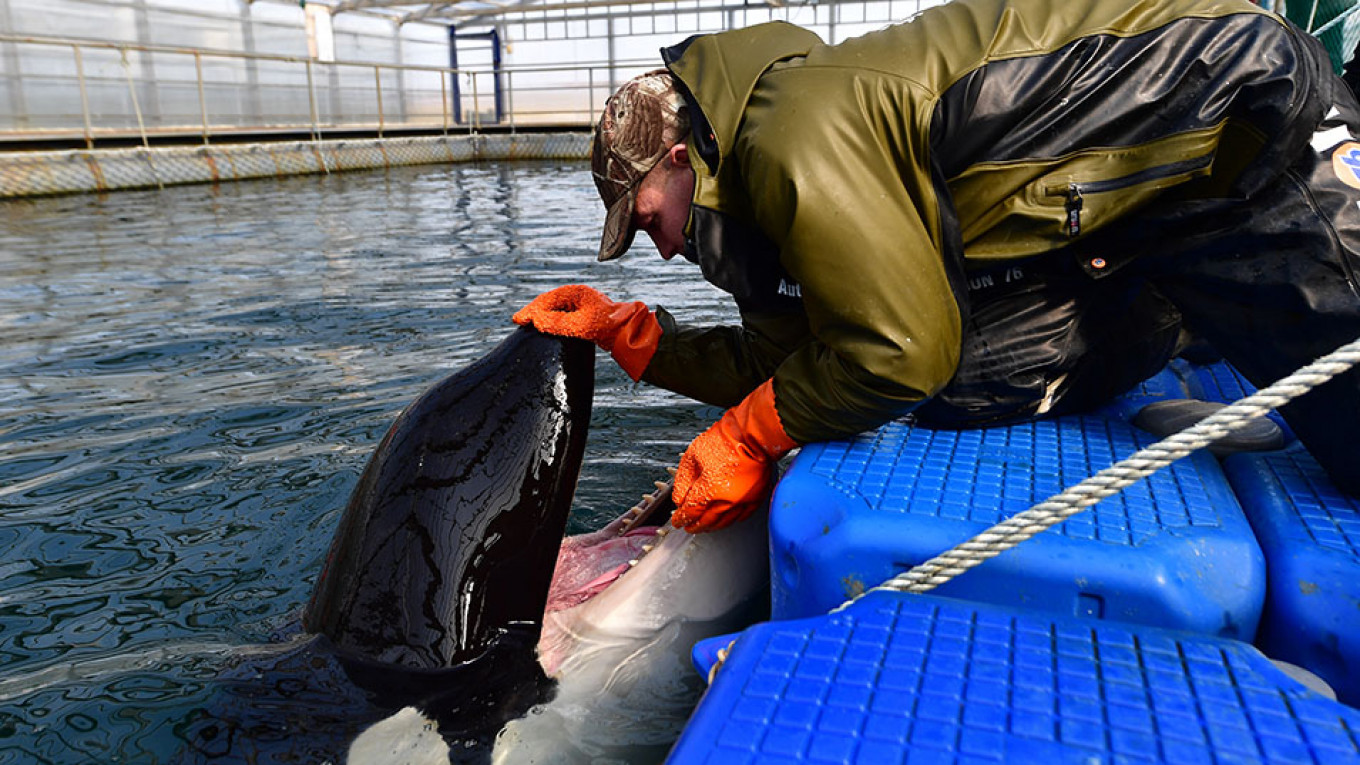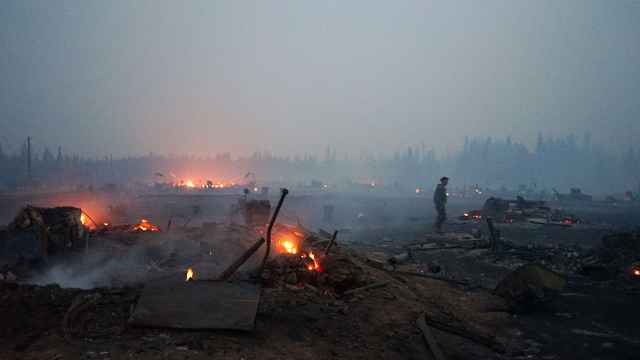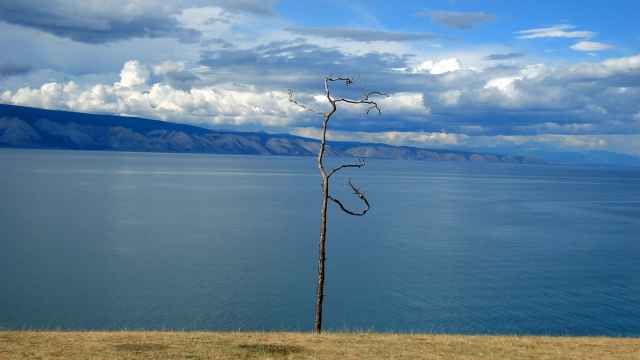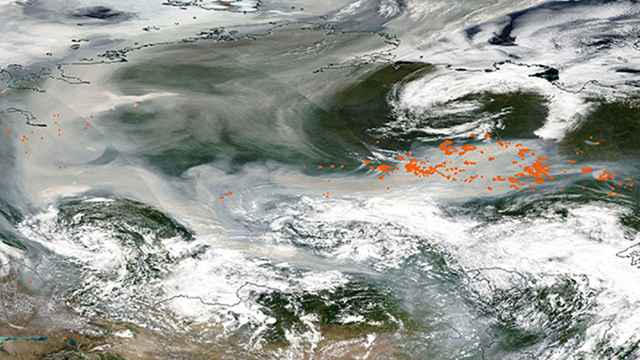Russian authorities have ordered the release of nearly 100 whales held captive in cages in Russia's Far East in a case that has drawn the ire of President Vladimir Putin, the public and international film stars, TASS news agency said on Thursday.
Images of the whales, kept in cramped enclosures in a bay near the Sea of Japan port town of Nakhodka, first appeared last year, triggering a wave of criticism.
The Kremlin has said the 11 orcas and 87 beluga whales were held in cruel conditions and were intended for sale to aquariums and Chinese buyers.
But the problem of how to release the whales without harming them has caused delays and the animals remain in the enclosures, which Russian media have nicknamed a "whale prison".
Russia's federal security service, the FSB, brought charges against four companies on Monday for breaking fishing laws, TASS reported.
"Expertise showed that the animals were kept in unsatisfactory conditions, and must be released into their natural habitat," it cited the FSB as saying.
Kremlin spokesman Dmitry Peskov said last week that Putin had personally stepped in to handle the matter.
"We are doing everything we can," Ecology Minister Dmitry Kobylkin was cited by TASS news agency as saying on Thursday.
"No one objects to releasing the orcas, but the most important thing is to release them properly," he said, listing cold weather as one of the obstacles to freeing the whales without causing them any harm.
A petition to release the whales, shared by actor Leonardo DiCaprio on social media, has gathered more than 900,000 signatures online. Actress Pamela Anderson posted an open letter to Putin on her website.
"News about the 'whale jail' near Nakhodka, the icy conditions, and the suffering of the orca and beluga whales is causing international concern," the actress wrote.
Further complicating matters is the fact that Russia has no direct ban on the catching of such animals, Kremlin spokesman Peskov said last week. They can be caught, in specific circumstances, for scientific and educational purposes.
A Message from The Moscow Times:
Dear readers,
We are facing unprecedented challenges. Russia's Prosecutor General's Office has designated The Moscow Times as an "undesirable" organization, criminalizing our work and putting our staff at risk of prosecution. This follows our earlier unjust labeling as a "foreign agent."
These actions are direct attempts to silence independent journalism in Russia. The authorities claim our work "discredits the decisions of the Russian leadership." We see things differently: we strive to provide accurate, unbiased reporting on Russia.
We, the journalists of The Moscow Times, refuse to be silenced. But to continue our work, we need your help.
Your support, no matter how small, makes a world of difference. If you can, please support us monthly starting from just $2. It's quick to set up, and every contribution makes a significant impact.
By supporting The Moscow Times, you're defending open, independent journalism in the face of repression. Thank you for standing with us.
Remind me later.






